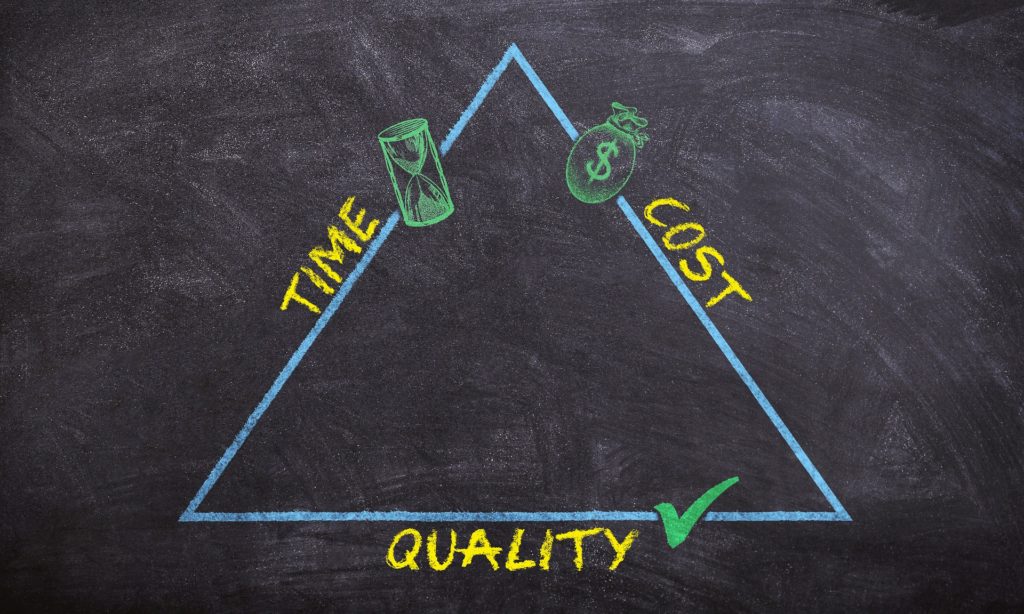In order to understand why any particular process is a paid service we need to first understand what it actually means. According to the Association for Project Management organization, project management is the application of processes, methods, skills, knowledge, and experience to achieve specific project objectives according to the project acceptance criteria within agreed parameters. Project management has final deliverables that are constrained to a finite timescale and budget. Additionally, a key factor that distinguishes project management from just ‘management’ is that it has this final deliverable and a finite timespan, unlike management which is an ongoing process. Because of this a project professional needs a wide range of skills; often technical skills, and certainly people management skills and good business awareness.
“At its most fundamental, project management is about people getting things done.”
But what does this all mean exactly and how does this pertain to a paid service? First of all, the differences appear straight out of the bat. While the definition seems to be pretty clear, at the same time it leaves room for a lot ot be played with. This is why companies deal with Project management in many different ways and Project managers can have experience in various areas from one company or another. For example, some are getting more involved in the technical aspects, as it can be seen in fields such as QA (Quality Assurance). This is where a Project manager can get himself involved in checking and verifying the completion of certain tasks by his team and in order to do so, a varying degree of technical knowledge is necessary. In other industries the Project managers often do a lot more people management, task management or have to maintain a healthy communication with the clients as well.
In our specific case, as a digital agency, Project managing includes almost everything as we have to work under specific deliverables and a finite timespan, and we also need to check and verify the completed tasks of our colleagues as well as sometimes even doing some of the more mundane work ourselves, work that doesn’t require a professional set of skills, but one that requires nevertheles precious time and a great deal of attention, something that our clients don’t always have. As an example, tasks like posting articles on a blog, changing a few images in a website, various text changes, and anything that doesn’t really involve professional knowledge of coding, design or server infrastructure.
To be even more transparent, let’s split the processes our Project manager is involved in two categories, one which would be tasks that are not considered a paid service and the second one which includes all tasks that are viewed as paid services.
Nonpaid Project management services would be:
- Initial contact with a client and all of the necessary communication in the negotiation stage that exists pre-signing a contract;
- Creating a website audit from the user perspective (part of included services in our packages);
- Daily/Weekly website checks which are done in order to make sure that a website maintains it’s functionality/accessibility but also to detect possible errors that might appear due to an automated update (part of included services in our packages);
- Any additional communication with the client that revolves around issues that need to be fixed according to the agreed parameters of delivery, or solicitations regarding critical issues that impact a website’s (app/eshop/etc.) functionality;
- Any internal discussion between the Project manager and web-developers/ web-designers, related to task designation, task estimates, basically concerning any internal issues that require the alignment of various resources;
- Pro-actively notifying clients about certain issues that might need their attention;
- And last but not least, all the administrative tasks such as billing/ invoicing, compiling and the delivery of regular/ requested project reports.
As you can probably see, all non-paid work is either work that is contractually assumed by us, as a digital agency, or it revolves around tasks that are not the subject of additional specific requests from a client.

On the other hand, paid Project management services would be:
- Any communication between the Project manager and a client in relation to new/ follow up requests;
- Any discussion with the Web-developers/ Web-designers, Server-side tech workers, etc. that pertains to the solving of an additional request that is not contractually assumed by our agency;
- Quality assurance post task/project completion, before the finished task is delivered to the client for their approval/feedback;
- Any participation in feedback sessions directly with the client or with the developers themselves whenever engaged in a task that is not contractually assumed by our agency;
- Any Web Admin task that does not require a professional set of skills or knowledge (such as publishing articles that do not require coding or graphic design knowledge);
- Any additional user-perspective QA testing that is necessary for the completion of task or as a response to a client’s request or complaint, to determine the nature and severity of the issue at hand.
“At the end of the day, time is money and both resources are finite.”
Once again, all of these services are directly or indirectly linked to specific tasks generated by extra demands or requests from a client which are not covered by the monthly package they have subscribed to.
Project management is a paid service because all these support tasks take time that adds up to hours of work that need to be financially covered, for obvious reasons. In addition to this, the Project manager is directly responsible of delivering within the agreed deadlines. He has to efficiently coordinate all the human resources as well as maintaining a transparent relationship with the client, keeping him “in the loop” regarding all project related matters.
We are confident that we struck the optimum balance regarding what should and shouldn’t be considered paid work when it comes to Project management. However, we take care to remain open to the feedback received from our clients, as landscapes are often shifting in this age as do the needs of our clients and partners.


